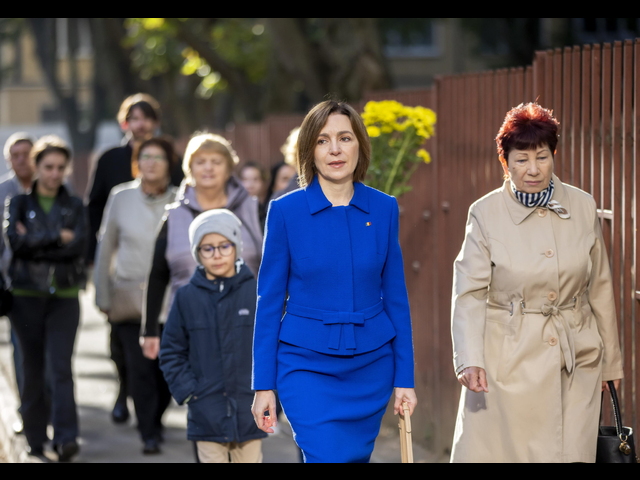
by Valentina Brini (ANSA) - BRUXELLES, SEP 28 - Polls closed at 9 p.m. local time, with lines of voters still waiting in front of the ballot box. Then the evening count delivered its verdict: Moldova is taking the European route, distancing itself-for the second time in a year-from Moscow's orbit. After a long run-up of fluctuating percentages, with counting almost complete, President Maia Sandu's Action and Solidarity Party gained the upper hand over the pro-Russian Patriotic Bloc led by former head of state Igor Dodon, cashing as many as 44 percent of the vote against 28 percent. Further bolstering the victory from Pas could be the yet-to-be-counted diaspora votes: nearly one-fifth of the electorate, which already in 2024 handed the pro-Europeans victory in the referendum on EU membership thanks to a mere 13,000 vote gap. The feverish anticipation that accompanied the day finally melted away in relief in Brussels, aware that at stake was not only the future of THE small country nestled between Ukraine and Romania, but also a crucial piece of the security of its eastern flank. Amid false bomb scares at home and in polling stations abroad, cyberattacks attributed to Moscow, suspicious voter movements, and a pro-Kremlin intervention by Telegram ceo Pavel Durov that was even relaunched by Elon Musk, the day was consumed in an electric atmosphere, culminating in a final turnout of 51.9 percent, the highest ever recorded for the renewal of 101 parliamentary seats. From the Petru Rares High School in Chisinau, Sandu made a final appeal for civic responsibility: "I voted to preserve peace and Moldova's European future. Today was the time to show love for our country. Tomorrow it might be too late," urged the former World Bank official elected in 2020 on the wave of anti-corruption sentiment and reappointed last year, reminding citizens that they can decide "the fate of a small nation but with worthy people, who do not sell their homeland either for 400 lei or 400 euros," and again denouncing Kremlin interference. Suspected interference ended up on the police radar especially in the 12 special polling stations reserved for voters in Transnistria - the pro-Russian separatist region east of the Dniester, where Moscow still deploys 1,500 soldiers after the brief war in the 1990s -, opened in the capital, in border towns such as Rezina and Varnița and in several villages in the so-called 'security zone. Just on the border, Promo-Lex independent observers reported the mass arrival of at least seventy people in eighteen cars with Transnistrian license plates. A little later, a group of ten individuals disembarked from two vehicles were arguing about who to vote for following directions on a Telegram channel on their smartphones. Similar incidents were also recorded in autonomous Gaugazia. And on Russian territory where, alongside long lines at polling stations, Moldovan police reported convoys of buses organized from Moscow to transfer voters with Moldovan passports to Belarus. A practice banned by law, but one that - according to analysts - the Kremlin would exploit by turning Minsk into a free zone to impose tight surveillance. This is nothing new: as early as 2024, some journalistic investigations had revealed how Russia orchestrated actual trips with charter flights and coaches to Azerbaijan, Belarus, and Turkey in an attempt to strengthen the then pro-Russian candidate Alexandr Stoianoglo, later defeated by Sandu. A witch hunt, in the opposite narrative of pro-Russian leader Dodon aligned with that of the Kremlin, which dismissed the shadows of manipulation as "hysteria." "Today political power is trembling in front of the people," thundered the former Moldovan president, accusing Sandu of wanting to "cancel votes." And already going so far as to call -- with the polls still open -- for a "peaceful protest in front of Parliament" at noon tomorrow. (ANSA).
